Unpaused: Naya Safar review – Nagraj Manjule, Saqib Saleem star in compelling Amazon Prime anthology
Unpaused: Naya Safar is an Amazon Prime series that charts the lives of various people across the second wave of the pandemic. The series features Nagraj Manjule, Saqib Saleem, Shreya Dhanwanthary, Priyanshu Painyuli among others and delves into stories of pain, love, companionship and loss.
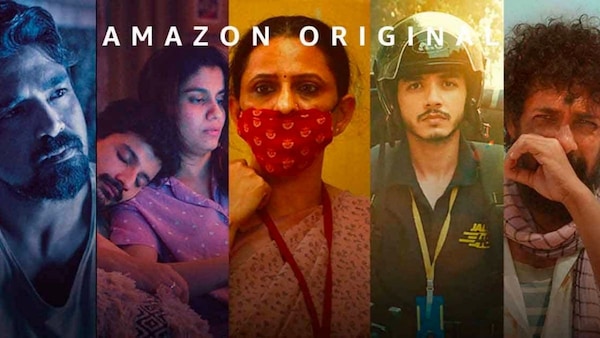
Last Updated: 10.44 AM, Jan 28, 2022
Story: This series follows the lives of different individuals as they try to navigate through the second wave of the pandemic. Romances, long lost friendships, forgotten revenge plans – everything comes to the fore with these short stories. Yet, all of them speak of hope and its everlasting power to drive people in trying times.
Review:
A pithy phrase in the short, titled Vaikunth, seems to encompass the entire narrative of Unpaused: Naya Safar – “Zyada mat soch, mazboot rehne ka.” (Don’t overthink it, just stray strong)
A spinoff to the 2020 anthology, Unpaused: Naya Safar continues the honest storytelling format that brings poignant snippets before audiences, depicting the various ways humans are coping with life in the pandemic era. Five filmmakers present five riveting narratives that speak of love, faith, humanity, and togetherness despite the raging death-deluge around them. Nupur Asthana (The Couple), Ayappa KM (War Room), Nagraj Manjule (Vaikunth), Shikha Makan (Gond Ke Laddu), and Ruchir Arun (Teen Tigada), join hands to present these stories for this series.
While Unpaused brought forth stories of perseverance and sheer motivation to face the challenges of the first wave of the global pandemic, its sequel dwells in a world already accustomed to the deadly virus. Naya Safar’s universe takes a deeper look at the second wave and how people try to make the best in such a scenario.
For example, the very first film, Nupur Asthana’s The Couple, traces the lives of a power couple, living in a plush rented apartment in the highrises of South Mumbai. Both work extra hard, putting their all in the ‘work-from-home’ environment and try to achieve their targets.
Akku (played by Shreya Dhanwanthary) is an environmentally conscious citizen who just succeeded in designing the first eco-sustainable yet commercially viable diaper. Her model is greenlit by the company for mass production and she is elated at this prospect. Dippi (Priyanshu Painyuli) on the other hand, is working in sales for a soap company.

Their lives revolve around google meetings, Bluetooth earphones and laptop screens. The only modicum of interpersonal interaction comes in the bits of scrabble-solving that the two keep indulging in through the day, one word at a time.
When Akku is suddenly laid off citing the weak excuse of the pandemic, their marriage comes under the scanner as the two figure out how to navigate this new situation.
Self-respects take a hit, egos clash, both lash out at each other.
In a particularly cathartic scene, when Akku and Dippi lash out at each other, Akku plainly says that she is as capable and hardworking as Dippi, yet, she needs to face such dire situations. "Four out of 10 women have lost their jobs during the pandemic," she declares, “That’s almost 50% of the entire female workforce.” Akku’s anger and frustration are targetted at the disparity between the rich and the middle-class, of how the ones already grappling with financial struggles get the shorter end of the stick, yet again.
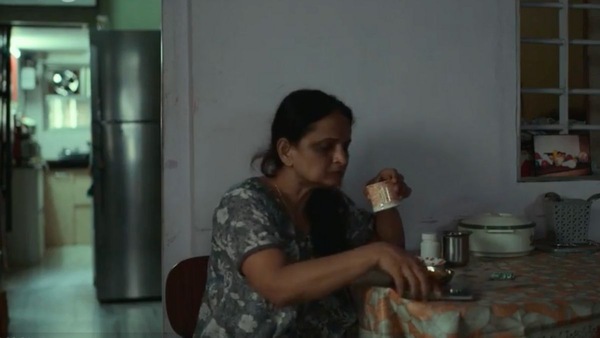
In Ayappa KM’s War Room, the narrative revolves around Sangeeta Waghmare, a widow who is a former schoolteacher. She volunteers for the COVID-19 helpline, trying to compensate for the gnawing sense of emotional vacuum that is present in her life.
The incessant phone calls for hospital beds and the decreasing number of beds flashing on screen give the short a sense of gloom. War Room (a term often used in journalism fields to describe a heated newsroom trying to cope in any emergency breaking news situation) is all about these selfless people trying to reach out to others without any means of support.
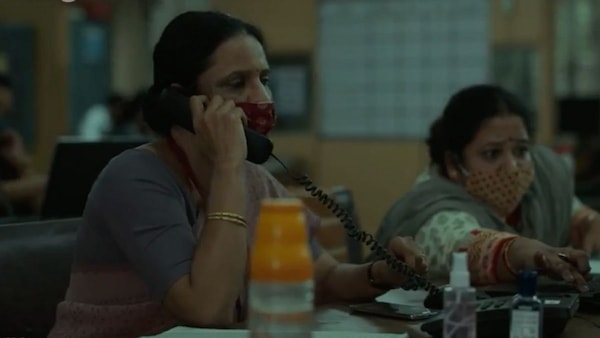
Sangeeta goes about her life alone, trying to cope with each day at a time. Her busy schedules at the help centre take up her attention and she whizzes past each patient, accommodating their needs. But with a sudden phone call, the world holds still,
Sangeeta winces on hearing the caller’s name. She mulls over the conversation and asks the caller to repeat the patient’s name. Disconcerting flashbacks flood her senses and audiences immediately understand the name holds considerable weight. It’s later divulged that the person in question was somehow involved in the faulty execution of things when her son was getting hospitalised.
As a result of the delay, she lost her only son, creating an emotional dent that was undeniably sore. Now that Sangeeta holds the reins to that person's life, she feels an overwhelming spate of emotions that include ones of revenge, anger, hatred, sorrow, concern, and most importantly, pain.
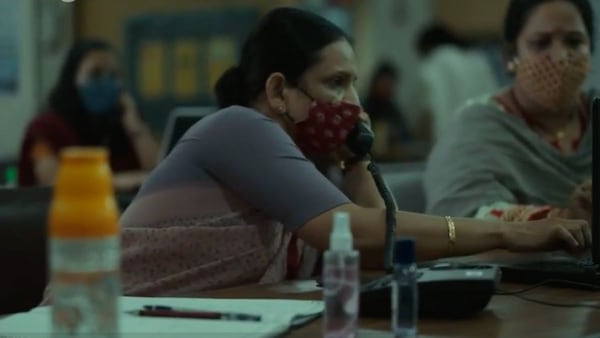
In a particularly harrowing scene, she hesitates before writing a message to the man's son (the caller) lying about the availability of beds. She types “no bed available” and deletes it several times. An intervention from the higher-ups asking her why she shared her personal number with the caller, abruptly ends her stupor. Her intentions are questioned, she is blatantly asked if she demanded money and the caller is contacted to cross-check.
Kulkarni’s quietude in the following scenes says a thousand words. She just stands there dumbfounded, murmuring weak excuses about her late reply. She says nothing, but you somehow understand the trajectory of her thoughts. Her realisation, her guilt and then finally, her remorse. On her way back home, she buys an entire bunch of pens from a boy selling them on the street.
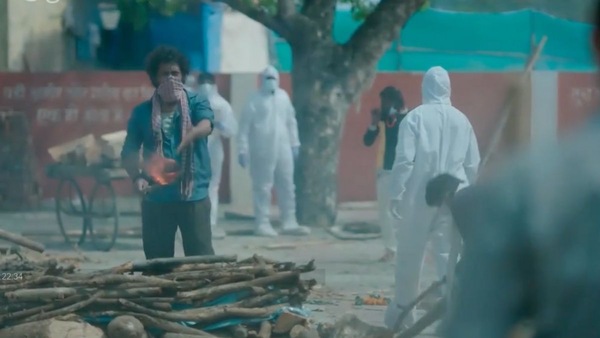
A surprise element to this anthology is Nagraj Manjule’s Vaikunth, a scathing short film that features him as Vikas Chavan, one of the helpers at the crematorium. His daily chore renders him almost stoic to the concepts of death and loss.
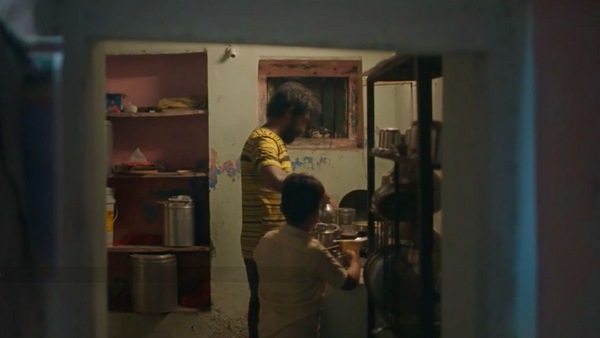
Manjule, in an unrecognisable role, plays Vikas with a restraint, just so that viewers understand his constant hesitance and lack of agency. A father to a pre-teen Avinash, Vikas constantly fights to run his family of three, which also has his own ailing father, hospitalised due to COVID 19. A series of unfortunate events follow, but father and young son make it through somehow. Manjule’s command over the narrative as well as his mature acting are a delightful combination.
Manjule's treatment of the morbid is both disconcerting and addictive. Scene after scene, audiences are made privy to lifeless bodies being dumped at the crematorium, the hurried gait of COVID-19 helpers around these 'gunny bags' in order for them to get disposed of fast, and the complete helplessness of families who often even confuse their deceased relatives owing to the unrecognisable corpses.
Verdict: Unpaused: Naya Safar is everything good – hopeful stories told in a manner that they feel completely authentic, completely relatable notwithstanding social or economic divides.
Watch Unpaused: Naya Safar here .
Subscribe to our newsletter for top content, delivered fast.

